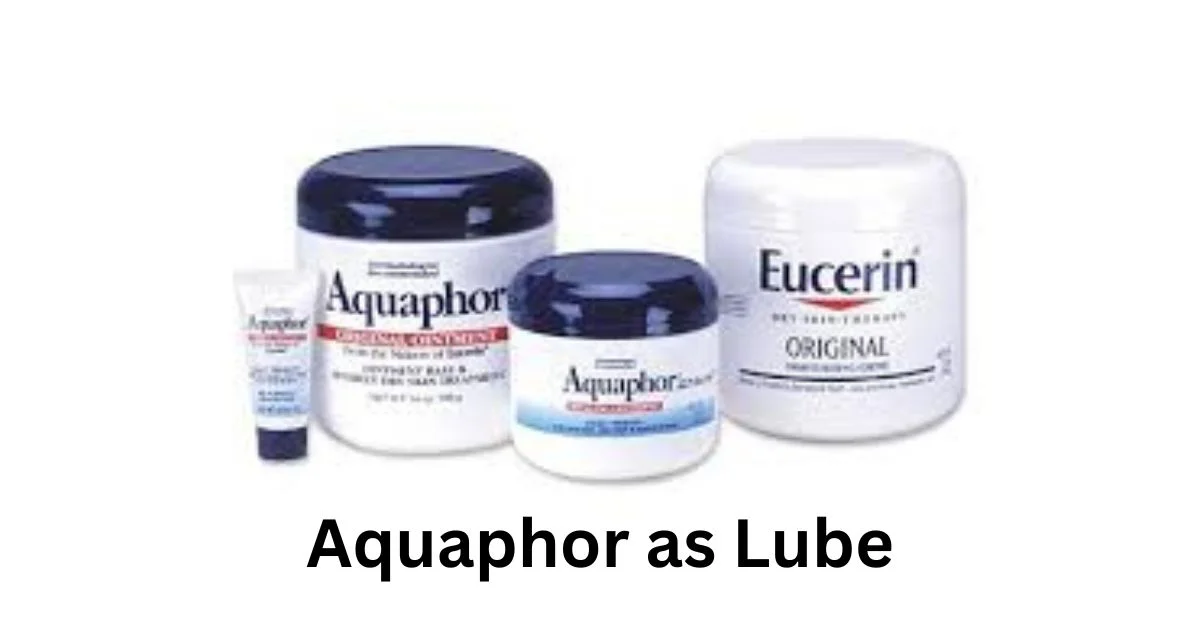Health
Mane and ADHD: Understanding the Potential Benefits for Focus and Cognitive Function

Are you struggling to stay focused and maintain cognitive function throughout the day? If so, you’re not alone. Attention Deficit Hyperactivity Disorder (ADHD) affects millions of people worldwide, making it difficult to concentrate and perform at your best. While traditional treatment options like medication can be effective, they often come with unwanted side effects. That’s where Lion’s Mane comes in! This unique mushroom species has been gaining popularity for its potential benefits in improving focus and cognitive function. In this blog post, we’ll explore the exciting world of Lion’s Mane and how it may offer a natural alternative for individuals dealing with ADHD. So get ready to dive into the fascinating realm of Lion’s Mane and discover its potential as an aid for better mental clarity and concentration!
What is Lion’s Mane?
Lion’s Mane, scientifically known as Hericium erinaceus, is a unique mushroom that has been used for centuries in traditional Chinese medicine. It gets its name from its resemblance to the mane of a lion – long, flowing strands that cascade downward. This distinctive appearance isn’t the only thing that sets Lion’s Mane apart.
What makes this mushroom truly special are its potential health benefits. Lion’s Mane contains bioactive compounds such as hericerins and erinacines, which have been linked to various therapeutic properties. These include promoting brain health, supporting cognitive function, boosting mood, and even potentially helping with nerve regeneration. With its rich history and promising potential, it’s no wonder Lion’s Mane has garnered attention as a natural remedy for various ailments!
What is ADHD?
ADHD, which stands for Attention Deficit Hyperactivity Disorder, is a neurodevelopmental disorder that affects both children and adults. It is characterized by persistent patterns of inattention, hyperactivity, and impulsivity that can interfere with daily functioning and academic performance.
People with ADHD often struggle with maintaining focus, organizing tasks, staying on track, and controlling impulses. They may have difficulty following instructions or completing assignments. ADHD can also impact social interactions and relationships.
This disorder is believed to be caused by a combination of genetic factors, brain structure differences, neurotransmitter imbalances, and environmental influences. While there is no known cure for ADHD, various treatment options are available to help manage symptoms and improve quality of life.
Traditional Treatment Options for ADHD
When it comes to managing ADHD, there are a variety of traditional treatment options available. These often include medications such as stimulants like Adderall and Ritalin, which work by increasing the levels of certain chemicals in the brain that help with focus and attention.
Medication, behavioral therapy is also commonly used to help individuals with ADHD develop coping strategies and improve their self-control. This type of therapy can involve techniques such as setting goals, creating routines, and practicing relaxation exercises. While these traditional treatments can be effective for many people with ADHD, they may not be suitable or preferred by everyone due to potential side effects or personal preferences.
Potential Benefits of Lion’s Mane for ADHD
Lion’s Mane, a unique mushroom with potential health benefits, has been gaining attention for its possible positive effects on ADHD. Some research suggests that Lion’s Mane may help improve focus and cognitive function in individuals with ADHD. This natural supplement is believed to support brain health by promoting the production of nerve growth factors and reducing inflammation in the brain.
Lion’s Mane contains compounds that may enhance memory and concentration, which are areas commonly affected by ADHD symptoms. While further studies are needed to fully understand the specific mechanisms behind these potential benefits, many individuals have reported improvements in their ability to concentrate and stay focused after incorporating Lion’s Mane into their daily routine. With its promising properties, Lion’s Mane offers an intriguing alternative for those seeking natural options for managing ADHD symptoms.
What are the Health Benefits of Lion’s Mane?
Lion’s Mane, also known as Hericium erinaceus, is a medicinal mushroom that has been used for centuries in traditional Chinese medicine. It is well-known for its potential health benefits, including improving brain function and boosting cognitive abilities.
One of the primary health benefits of Lion’s Mane is its ability to enhance focus and concentration. This mushroom contains compounds called hericenones and erinacines, which have been shown to stimulate the growth of nerve cells in the brain. By promoting neurogenesis, Lion’s Mane may help improve memory retention, learning abilities, and overall mental clarity.
Its cognitive-enhancing effects, Lion’s Mane is believed to have anti-inflammatory properties that can support overall brain health. Studies have suggested that this mushroom may protect against age-related cognitive decline by reducing inflammation and oxidative stress in the brain. While more research is needed to fully understand all of the potential health benefits of Lion’s Mane, it shows promise as a natural supplement for enhancing focus and supporting cognitive function.
What are the Side Effects of Lion’s Mane?
When it comes to natural remedies like Lion’s Mane, it’s important to know about any potential side effects. Fortunately, this medicinal mushroom is generally considered safe for most people. However, as with any supplement or medication, there are a few things to keep in mind.
Some individuals may experience mild digestive issues such as stomach discomfort or diarrhea when taking Lion’s Mane. These symptoms are usually temporary and subside on their own. It’s also worth noting that allergic reactions are possible, although they are rare. If you have known allergies to mushrooms or other fungi, it’s wise to exercise caution and consult with your healthcare provider before incorporating Lion’s Mane into your routine.
The side effects of Lion’s Mane tend to be minimal and manageable for most people. As always, it’s best to speak with a healthcare professional if you have any concerns or pre-existing medical conditions before adding new supplements or herbs to your regimen.
Natural Alternatives to Adderall for ADHD
If you or your loved one has been diagnosed with ADHD, you may be exploring alternative treatment options to manage symptoms. One natural alternative to consider is Lion’s Mane, a mushroom known for its potential cognitive benefits. Lion’s Mane contains compounds that may support focus and concentration, making it an intriguing option for those seeking alternatives to medications like Adderall.
Another natural supplement that has gained attention for its potential benefits in managing ADHD symptoms is Ginkgo Biloba. This herb has been used in traditional medicine for centuries and is believed to improve memory and cognitive function. While more research is needed to fully understand the effects of Ginkgo Biloba on ADHD specifically, some individuals have reported positive results when using it as part of their holistic approach to managing their symptoms.
Always consult with a healthcare professional before starting any new supplement or treatment regimen for ADHD. They can provide personalized guidance based on your unique needs and help you make informed decisions about incorporating natural alternatives into your overall management plan.
Does Lion’s Mane Help with ADHD?
Lion’s Mane has gained attention in recent years for its potential benefits in improving focus and cognitive function. But does it really help with ADHD? While research on this specific topic is limited, some studies suggest that Lion’s Mane may have a positive impact on ADHD symptoms.
One study conducted on mice found that Lion’s Mane extract helped improve memory and learning abilities, which are often impaired in individuals with ADHD. Another study involving human participants showed that consuming Lion’s Mane mushroom daily for four months resulted in significant improvements in cognitive function.
While these findings are promising, more research is needed to determine the exact mechanisms by which Lion’s Mane may benefit individuals with ADHD. It is also important to note that results can vary from person to person, and what works for one individual may not work the same for another. Therefore, it is always recommended to consult with a healthcare professional before incorporating any new supplement into your routine.
How Much Lion’s Mane Should You Take for ADHD?
When it comes to using Lion’s Mane for ADHD, finding the right dosage is key. While there isn’t a standard recommended dose specifically for ADHD, experts suggest starting with a low dosage and gradually increasing it until you find what works best for you.
It’s important to note that everyone’s body is different, so what may work for one person may not be effective for another. As a general guideline, most studies on Lion’s Mane have used doses ranging from 500mg to 3000mg per day. However, it’s always best to consult with a healthcare professional before starting any new supplement regimen, especially if you’re taking other medications or have any underlying health conditions.
Does Ginkgo Biloba Help with ADHD?
Ginkgo Biloba, a popular herbal supplement, has been touted for its potential cognitive benefits. Some people wonder if it can also help with ADHD symptoms. While there is limited scientific research specifically on Ginkgo Biloba’s effects on ADHD, some studies suggest that it may have positive impacts on attention and memory.
One study published in the Journal of Psychopharmacology found that Ginkgo Biloba extract improved working memory performance in healthy individuals. Another study conducted by researchers at Swinburne University in Australia showed that Ginkgo Biloba supplementation enhanced sustained attention and response inhibition in young adults.
While these findings are promising, more research is needed to determine the effectiveness of Ginkgo Biloba specifically for ADHD treatment. It’s always important to consult with a healthcare professional before adding any new supplement to your routine, especially if you’re already taking medication for ADHD.
Lion’s Mane vs. Adderall: A Comparison for ADHD Treatment
When it comes to treating ADHD, there are various options available, including both pharmaceutical medications and natural alternatives. One popular medication is Adderall, a prescription stimulant that is commonly prescribed for ADHD. However, some people may be seeking natural alternatives to Adderall due to concerns about side effects or the desire for a more holistic approach.
Enter Lion’s Mane, a medicinal mushroom with potential cognitive benefits. Lion’s Mane has been gaining attention in recent years for its ability to enhance focus and cognitive function. Unlike Adderall, which works by increasing dopamine and norepinephrine levels in the brain. Lion’s Mane appears to work through different mechanisms.
While Adderall can provide immediate relief of symptoms such as hyperactivity and impulsivity. It also carries the risk of side effects like insomnia, loss of appetite, and increased heart rate. On the other hand, Lion’s Mane is generally considered safe with minimal reported side effects. It may take longer to notice the effects of Lion’s Mane compared to Adderall since it works on improving overall brain health rather than providing an immediate boost in neurotransmitter levels.
In comparing Lion’s Mane vs. Adderall for ADHD treatment, it ultimately comes down to personal preference and individual needs. Some individuals may find that traditional medication like Adderall provides them with the necessary symptom relief while others may prefer exploring natural alternatives like Lion’s Mane for a gentler approach without harsh side effects.
How Does Lion’s Mane Compare to Cognizin Citicoline?
When it comes to comparing Lion’s Mane and Cognizin Citicoline for ADHD treatment, there are a few key differences to consider.
Lion’s Mane is a natural mushroom extract that has been used for centuries in traditional Chinese medicine. It is believed to help improve cognitive function and focus by promoting the growth of nerve cells in the brain. On the other hand, Cognizin Citicoline is a synthetic compound that acts as a precursor to acetylcholine, an important neurotransmitter involved in memory and learning.
While both Lion’s Mane and Cognizin Citicoline have potential benefits for ADHD, they work through different mechanisms. Lion’s Mane focuses on promoting neurogenesis, while Cognizin Citicoline supports neurotransmitter production. The choice between the two may depend on personal preference and individual response to each supplement.
Lion’s Mane vs. ADHD Medication
When it comes to treating ADHD, medication like Adderall is often the go-to option. However, more and more people are looking for natural alternatives that may offer similar benefits without the potential side effects. This is where Lion’s Mane comes into play.
Lion’s Mane is a mushroom with a long history of use in traditional medicine for its cognitive-enhancing properties. Some studies have suggested that Lion’s Mane may help improve focus, memory, and overall cognitive function. All areas that individuals with ADHD struggle with. While there isn’t enough research specifically on Lion’s Mane and ADHD. Some users have reported positive results when using this natural supplement as part of their treatment plan.
Keep in mind that every individual is different, so what works for one person may not work for another. It’s important to consult with your healthcare provider before making any changes to your treatment plan or starting new supplements.
Considerations and Safety of Lion’s Mane for ADHD
When considering the use of Lion’s Mane as a natural alternative for managing ADHD symptoms. It is important to keep certain considerations in mind. First and foremost, it is crucial to consult with a healthcare professional before starting any new supplement regimen. They can provide personalized advice based on your specific needs and medical history.
Additionally, while Lion’s Mane is generally considered safe for most individuals. There may be potential side effects or interactions with other medications. It is always recommended to start with a low dosage and gradually increase. If necessary, under the guidance of a healthcare professional. By prioritizing safety and seeking expert advice, you can make informed decisions regarding. The use of Lion’s Mane as part of your ADHD management plan.
Is Lion’s Mane Safe?
When considering any supplement or alternative treatment, it’s important to evaluate the safety profile. Lion’s Mane is generally considered safe for most people when taken in recommended doses. However, as with any new addition to your regimen, it’s always a good idea to consult with a healthcare professional before starting.
Some potential side effects of Lion’s Mane may include mild digestive discomfort or an allergic reaction in rare cases. It’s also worth noting that there isn’t enough research on the long-term use of this mushroom extract, so caution should be exercised if you plan on using it regularly. As always, listen to your body and make informed decisions about what works best for you!
Potential Side Effects of Lion’s Mane
While Lion’s Mane is generally considered safe for most people, there are a few potential side effects to be aware of. Some individuals may experience mild digestive issues such as diarrhea or an upset stomach when taking Lion’s Mane supplements. These symptoms are usually temporary and subside on their own.
In rare cases, allergic reactions can occur, causing symptoms such as rash, itching, or difficulty breathing. If you experience any unusual or severe side effects after taking Lion’s Mane. It is important to discontinue use and seek medical attention immediately. As with any supplement or medication, it is always best to consult with a healthcare professional before adding Lion’s Mane to your routine. Especially if you have any pre-existing health conditions or take other medications.
Conclusion
Lion’s Mane is a fascinating natural supplement that shows potential benefits for individuals with ADHD. Its ability to support focus and cognitive function makes it an appealing alternative to traditional treatment options like Adderall.
However, it’s important to note that while Lion’s Mane has shown promise in some studies. More research is needed to fully understand its effectiveness for ADHD. It may not work the same way for everyone and should be approached. As a complementary option rather than a standalone treatment.
Before starting any new supplement or making changes to your current medication regimen. It’s crucial to consult with a healthcare professional who can provide personalized advice based on your specific needs and medical history.
Remember, managing ADHD involves a comprehensive approach that includes lifestyle modifications, therapy, and potentially medication. While Lion’s Mane may offer potential benefits. It should not replace other evidence-based treatments without proper guidance from a medical professional.
As always, make sure you prioritize your health and well-being above all else. Stay informed about the latest research developments and explore different options under the guidance of qualified professionals.
With careful consideration and open communication with your healthcare team. You can find the best strategies to manage ADHD symptoms effectively and improve overall quality of life.
Fashion
Aquaphor as Lube: What You Need to Know Before Trying It

Introduction
Aquaphor has long been a staple in many households, known for its ability to soothe and protect dry, irritated skin. But a new curiosity has emerged: can this versatile ointment double as an intimate lubricant? This question has sparked interest among those looking for multipurpose products and alternatives to specialized lubricants. In this article, we will explore the feasibility of using Aquaphor as lube, its safety implications, and what you should consider before making this decision.
Understanding Aquaphor
What is Aquaphor?
Aquaphor is an ointment produced by Eucerin, primarily designed to relieve and protect dry, chapped skin. Its formulation includes a blend of petrolatum, mineral oil, and other emollients that create a barrier on the skin, which helps retain moisture and promote healing.
Key Ingredients and Their Functions
- Petrolatum: Acts as an occlusive agent to lock in moisture.
- Mineral Oil: Helps to soften and smooth the skin.
- Glycerin: A humectant that draws moisture from the environment into the skin.
Intended Uses and Benefits
Aquaphor is commonly used to treat conditions such as eczema, psoriasis, and minor burns. Its gentle formulation makes it a popular choice for sensitive skin areas, but it was never intended for use as a lubricant.
The Question: Can Aquaphor Be Used as Lube?
Common Misconceptions
Many people assume that if a product is good for skin, it must be good for all skin-related uses, including lubrication. However, just because Aquaphor is beneficial for skin care doesn’t mean it’s suitable for intimate areas.
Why People Consider Using Aquaphor as Lube
The idea of using Aquaphor as a lubricant likely stems from its smooth texture and moisturizing properties. People looking for alternatives to commercial lubricants might see Aquaphor as a readily available option.
Overview of Popularity and Curiosity
Curiosity about using Aquaphor as lube reflects a broader trend of seeking multipurpose products and exploring non-traditional uses for everyday items.
Safety Considerations
Ingredient Safety for Intimate Areas
Aquaphor’s ingredients are designed for external skin use and might not be suitable for intimate areas. Petrolatum and mineral oil, while safe for skin, may cause irritation or disrupt the natural balance of sensitive areas.
Potential Risks and Reactions
Using Aquaphor as a lubricant may lead to allergic reactions or infections. The product is not formulated to be used internally and might not provide the same safety and comfort as specialized lubricants.
Hygiene and Sterility Concerns
Aquaphor is not a sterile product, and using it in intimate areas could introduce bacteria or pathogens, increasing the risk of infections. Specialized lubricants are designed with sterility and safety in mind.
Comparing Aquaphor with Specialized Lubricants
Water-Based Lubricants
Water-based lubricants are a popular choice due to their compatibility with condoms and sex toys. They are easy to clean up and generally safe for sensitive skin. Look for products without parabens or glycerin for a more natural option.
Silicone-Based Lubricants
Silicone-based lubricants provide long-lasting lubrication and are water-resistant, making them suitable for various activities. However, they may degrade silicone toys and require careful cleaning.
Oil-Based Lubricants
Natural oils like coconut oil can be used for external lubrication but should not be used with latex condoms, as they can weaken the latex. Oil-based lubes are not recommended for internal use.
Pros and Cons of Using Aquaphor as Lube
Benefits
- Moisturizing Properties: Aquaphor’s ability to hydrate the skin might offer some level of lubrication.
- Availability: Easily accessible in many households.
Drawbacks and Limitations
- Potential Irritation: Not designed for intimate areas, may cause irritation.
- Lack of Sterility: Increases risk of infections.
- Texture Issues: May not provide adequate or lasting lubrication.
Alternatives to Aquaphor for Intimate Lubrication
Best Water-Based Lubricants
- K-Y Jelly: A well-known brand for its gentle formulation.
- Sliquid H2O: Offers a natural, glycerin-free option.
Top Silicone-Based Lubricants
- Pjur Original: Long-lasting and suitable for various activities.
- Astroglide X: Provides a smooth, extended glide.
Safe Natural Oils for Lubrication
- Coconut Oil: Hydrating and naturally antimicrobial but not compatible with latex condoms.
- Almond Oil: A mild, moisturizing option but should be used cautiously.
How to Choose the Right Lubricant
Factors to Consider
- Compatibility: Ensure the lubricant works with condoms and sex toys.
- Personal Sensitivities: Choose a product that suits your skin type and preferences.
Matching Lubricants to Needs and Preferences
Consider what type of activities you’ll be engaging in and choose a lubricant that offers the appropriate level of comfort and effectiveness.
Conclusion
While the idea of using Aquaphor as lube may be intriguing, it’s essential to prioritize safety and effectiveness. Aquaphor is not designed for intimate lubrication and may pose risks such as irritation or infection. Opting for specialized lubricants, whether water-based, silicone-based, or natural oils, ensures a safer and more comfortable experience. Always consider your health and well-being when choosing products for intimate use.
FAQs
What are the risks of using Aquaphor as lube?
Using Aquaphor as a lubricant can lead to irritation, allergic reactions, or infections due to its ingredients and lack of sterility.
Can Aquaphor cause infections or irritation?
Yes, Aquaphor may disrupt the natural balance of intimate areas and increase the risk of infections or irritation.
What are the best alternatives to Aquaphor for lubrication?
Water-based, silicone-based, and safe natural oil lubricants are better alternatives, each offering specific benefits and suitability for different needs.
How do water-based lubes compare to silicone-based lubes?
Water-based lubes are easier to clean and safe for most activities, while silicone-based lubes offer longer-lasting lubrication and are water-resistant.
Are natural oils a safe option for lubrication?
Natural oils like coconut oil can be used for external lubrication but should not be used with latex condoms, as they can weaken the latex.
Health
RAD-150: The Ultimate SARM for Strength and Muscle Gains

Introduction
What is RAD-150?
RAD-150, also known as a selective androgen receptor modulator (SARM), has been making waves in the fitness and bodybuilding communities. Unlike traditional anabolic steroids, RAD-150 is designed to selectively bind to androgen receptors in muscle and bone tissues, thereby promoting muscle growth and strength gains without some of the undesirable side effects associated with steroids.
Why RAD-150 Matters
The increasing interest in RAD-150 can be attributed to its unique benefits over other performance enhancers. Athletes and bodybuilders seek RAD-150 for its potential to enhance muscle mass, improve strength, and aid in fat loss while minimizing adverse effects on other body systems.
Understanding SARMs
What Are Selective Androgen Receptor Modulators (SARMs)?
SARMs are a class of compounds that, similar to anabolic steroids, target androgen receptors but with greater specificity. This specificity allows them to offer muscle-building benefits while avoiding some of the broader side effects typically associated with steroids.
How SARMs Work
SARMs like RAD-150 bind selectively to androgen receptors in specific tissues. This selective binding helps in promoting muscle growth and strength without affecting other parts of the body, making them a popular choice for those looking to enhance physical performance.
RAD-150 vs. Other SARMs
Comparing RAD-150 with RAD-140
RAD-150 and RAD-140 (Testolone) are often compared, as both are used to enhance muscle mass and strength. RAD-150 is noted for its improved binding affinity to androgen receptors, potentially offering more significant gains with fewer side effects.
Advantages Over Traditional Steroids
Compared to traditional anabolic steroids, RAD-150 is believed to have a better safety profile. It selectively targets muscle and bone tissue, potentially reducing risks associated with hormonal imbalances and other systemic issues.
Benefits of RAD-150
Enhanced Muscle Growth
RAD-150 is particularly noted for its ability to enhance muscle hypertrophy. Users often report significant gains in muscle size and strength, which makes it a sought-after supplement for bodybuilders and athletes.
Improved Strength and Performance
In addition to muscle growth, RAD-150 is reputed to improve strength and overall physical performance. This makes it beneficial for both athletes looking to gain a competitive edge and bodybuilders aiming for peak performance.
Fat Loss Support
RAD-150 may also aid in fat loss. Its muscle-building effects can boost metabolism, helping users burn more calories and reduce body fat.
Cycling RAD-150
Why Proper Cycling is Important
Cycling refers to the practice of using RA’D-150 in structured phases, alternating between periods of use and non-use. Proper cycling is crucial to maximize gains, maintain the compound’s effectiveness, and minimize potential side effects.
Typical RAD-150 Cycle
A typical RA’D-150 cycle might last 8-12 weeks, followed by a break period. This approach helps in preventing the body from adapting too quickly to the compound, which could diminish its effectiveness.
Post-Cycle Therapy (PCT)
Post-Cycle Therapy (PCT) is an essential component after completing a RA’D-150 cycle. PCT helps in restoring natural hormone levels and maintaining gains achieved during the cycle.
Dosage and Administration
Recommended Dosage
The recommended dosage for RA’D-150 varies depending on individual goals and experience. However, a common dosage range is between 10-20 mg per day. Starting with a lower dose and gradually increasing is often recommended to assess tolerance.
Administration Tips
RA’D-150 is usually administered orally in the form of a liquid or capsule. Consistency in taking the compound, along with proper cycling and dosage, is key to achieving the desired results.
Side Effects and Safety
Potential Side Effects
While RA’D-150 is considered safer than traditional steroids, it can still cause side effects. Common side effects may include changes in hormone levels, potential liver strain, and mood changes. It’s important to monitor these effects and consult with a healthcare provider.
Safety Precautions
To ensure safety while using RAD-150, adhere to recommended dosages, cycle appropriately, and undergo regular health check-ups. Staying informed about potential risks and addressing them promptly is crucial.
Legal and Regulatory Status
Is RA’D-150 Legal?
The legality of RA’D-150 varies by country. In many places, it is classified as a research chemical and is not approved for human consumption. Users should be aware of their local regulations and ensure compliance to avoid legal issues.
Regulations and Compliance
Understanding and adhering to regulations related to SARMs is essential for both legal and health reasons. It’s important to purchase RA’D-150 from reputable sources and to stay updated on regulatory changes.
Expert Insights and Testimonials
What Experts Say
Experts in the field of sports medicine and bodybuilding often discuss the benefits and risks of using SARMs like RA’D-150. Their insights can provide valuable information on how to use the compound effectively and safely.
User Experiences
Many users share their experiences with RA’D-150 in online forums and reviews. These testimonials can offer practical insights into the compound’s effectiveness and potential side effects.
Conclusion
RAD-150 offers significant benefits for muscle growth, strength enhancement, and fat loss. Proper usage and cycling are key to maximizing these benefits while minimizing side effects.
For those considering RAD-150, it’s important to weigh the benefits against potential risks. Consulting with healthcare professionals and adhering to recommended practices can help in achieving optimal results.
FAQs
What is RA’D-150 used for?
RA’D-150 is used to enhance muscle growth, strength, and performance, and may also support fat loss.
How long should a RA’D-150 cycle last?
A typical RA’D-150 cycle lasts between 8-12 weeks, followed by a break period.
Are there any common side effects of RA’D-150?
Common side effects may include changes in hormone levels, potential liver strain, and mood changes.
Is RA’D-150 legal?
The legality of RA’D-150 varies by country. It is often classified as a research chemical and may not be approved for human consumption in some regions.
What is Post-Cycle Therapy (PCT)?
Post-Cycle Therapy (PCT) is a regimen used after completing a RA’D-150 cycle to help restore natural hormone levels and maintain gains.
Health
The Rice Purity Test: A Deep Dive into Its Significance and Impact

The Rice Purity Test: A Deep Dive into Its Significance and Impact :
The Rice Purity Test has become a cultural phenomenon, particularly among college students and young adults. But what exactly is this test, and why has it garnered so much attention.The Rice Purity Test is a self-assessment survey consisting of 100 questions that cover various aspects of personal behavior, ranging from innocent activities to more risqué experiences. Participants mark the activities they have not engaged in, resulting in a “purity score” out of 100, where a higher score indicates a higher level of innocence.
Brief History of the Rice Purity Test :
Originally created by students at Rice University in Houston, Texas, the Rice Purity Test was intended as a fun way to bond with peers and initiate conversations about life experiences. Over the years, it has evolved and spread beyond college campuses, becoming a popular tool for self-reflection and social interaction.
Understanding the Rice Purity Test :
Purpose and Origins
The primary purpose of the Rice Purity Test is to provide a light-hearted way for individuals to reflect on their life experiences and compare them with those of others. While it started as a collegiate tradition, its appeal has broadened due to the rise of social media and the internet.
Who Takes the Rice Purity Test?
While initially popular among college students, the Rice Purity Test is now taken by a diverse range of people. High school students, young adults, and even older individuals participate out of curiosity or for nostalgic reasons.
How to Take the Test
The test is available online on various websites. Participants answer “yes” or “no” to each question, and the total number of “no” responses determines the purity score. The process is straightforward and can be completed anonymously.
Categories of Questions
The Rice Purity Test covers a wide range of topics, divided into several categories:
Social and Personal Conduct
Questions in this category assess general behavior in social settings, such as attending parties, making prank calls, or pulling an all-nighter.
Sexual Behavior
These questions delve into romantic and sexual experiences, from first kisses to more intimate encounters.
Substance Use
Participants are asked about their use of alcohol, tobacco, and drugs, reflecting their experiences with substance consumption.
Academic and Legal Issues
This category includes questions about cheating on tests, getting arrested, or facing other legal troubles.
Relationship Dynamics
Questions here explore the complexities of relationships, including dating, breakups, and unrequited love.
High Scores vs. Low Scores
A high score signifies a more sheltered or cautious lifestyle, while a low score suggests a willingness to explore and take risks. Neither score is inherently good or bad; they simply reflect different life paths.
What Your Score Says About You
Your score can offer insights into your personality and life choices. It might indicate your openness to new experiences, your adherence to societal norms, or your adventurous spirit.
Cultural Impact of the Rice Purity Test
Popularity in Colleges and Universities
The test remains a staple on college campuses, often used during orientation weeks or dormitory bonding sessions. It serves as an icebreaker and a way to foster community spirit.
Influence on Social Media
The Rice Purity Test has seen a resurgence on platforms like TikTok, Instagram, and Twitter, where users share their scores and reactions, sometimes leading to viral trends.
Rice Purity Test Memes
The humorous and sometimes absurd nature of the questions has spawned a variety of memes, adding to the test’s appeal and reach.
Psychological Perspectives
Why People are Fascinated by Purity Tests
Purity tests tap into our curiosity about ourselves and others. They provide a structured way to reflect on personal experiences and can spark interesting conversations.
The Impact on Self-Perception
Taking the test can influence how individuals view their own behaviors and decisions, sometimes leading to introspection or even changes in behavior.
Comparing Scores with Friends
Comparing scores with peers can be a fun and enlightening activity, highlighting similarities and differences in life experiences and fostering deeper connections.
Criticisms and Controversies
Privacy Concerns
Sharing purity test scores can lead to privacy issues, especially if individuals feel pressured to disclose personal information.
Potential for Misinterpretation
The simplicity of the test can lead to misunderstandings about what the scores truly represent, potentially resulting in judgment or stigma.
Ethical Considerations
There are ethical concerns regarding the pressure to conform or the potential for shaming based on test results. It’s important to approach the test with a healthy mindset.
Modern Adaptations and Alternatives
Updated Versions of the Rice Purity Test
Newer versions of the test include updated questions that reflect contemporary societal norms and issues, making them more relevant to today’s participants.
Other Popular Online Purity Tests
There are many other purity tests available online, each with its own unique focus and set of questions, catering to different audiences and interests.
The Future of Online Quizzes
As technology and social norms evolve, online quizzes like the Rice Purity Test will likely continue to adapt, offering fresh ways to explore personal and social behaviors.
Taking the Rice Purity Test Responsibly
Tips for a Healthy Perspective
Remember that the test is meant to be fun and reflective, not a definitive judgment of character. Use it as a tool for self-exploration, not self-criticism.
Discussing Your Results
If you choose to share your results, do so with people you trust and who will respect your experiences without judgment.
Avoiding Peer Pressure
It’s important to take the test at your own pace and comfort level. Don’t let peer pressure influence your answers or your feelings about your score.
The Role of Purity Tests in Self-Discovery
Using the Test for Personal Insight
The questions can prompt self-reflection on past decisions and future goals, helping you understand yourself better.
Growth and Maturity Reflected in Scores
As people mature, their scores may change, reflecting their evolving life experiences and perspectives.
Embracing Your Results
Whether your score is high or low, embrace it as part of your unique journey. Use it as a starting point for personal growth and understanding.
How to Discuss Purity Tests in Relationships
Conversations with Partners
Discussing purity tests with a partner can open up meaningful conversations about values, experiences, and boundaries.
Navigating Different Scores
Different scores can lead to differences in experiences and perspectives. Use these differences to learn from each other and build a stronger relationship.
Building Understanding and Respect
Respect each other’s histories and choices. A purity test score is just one aspect of who you are.
Fun Facts About the Rice Purity Test
Strange and Interesting Questions
Some questions on the test are quirky and unexpected, adding to the fun and intrigue of taking it.
Unexpected Trends in Scores
Scores often vary by region, culture, and age group, revealing interesting trends and patterns.
Celebrity Purity Scores
There’s a playful curiosity about how celebrities might score, though these are purely speculative and part of the fun.
Resources for Further Exploration
Books and Articles on Purity and Self-Assessment
There are numerous resources available for those interested in deeper exploration of purity, self-assessment, and related psychological concepts.
Online Communities and Forums
Joining online communities can provide support and shared experiences, enhancing your understanding and connection with others who have taken the test.
Psychological Research on Purity Tests
Academic studies on purity tests and their effects can offer valuable insights into their psychological and social implications.
Conclusion
The Rice Purity Test, with its blend of fun and introspection, remains a popular tool for self-discovery and social connection. Whether you take it for entertainment or insight, it offers a unique window into your life experiences and those of others.
-

 Fashion2 years ago
Fashion2 years agoExploring Purenudism: Embracing Body Positivity and Freedom
-

 Shops1 year ago
Shops1 year agoStaples Store Hours: What Time Does Staples Open And Close?
-

 Shops2 years ago
Shops2 years agoWalmart Vision Center Hours
-

 Shops1 year ago
Shops1 year agoWalgreen Pharmacy Hours: What Time Does It Open & Close?
-

 Shops1 year ago
Shops1 year agoPublix Pharmacy Hours and Locations
-

 Entertainment2 years ago
Entertainment2 years agoThothub.lol: The Digital Realm of Entertainment
-

 Business2 years ago
Business2 years agoDesigner Clothing: Making a Statement
-

 Shops1 year ago
Shops1 year agoWalmart Deli Open & Close Hours
